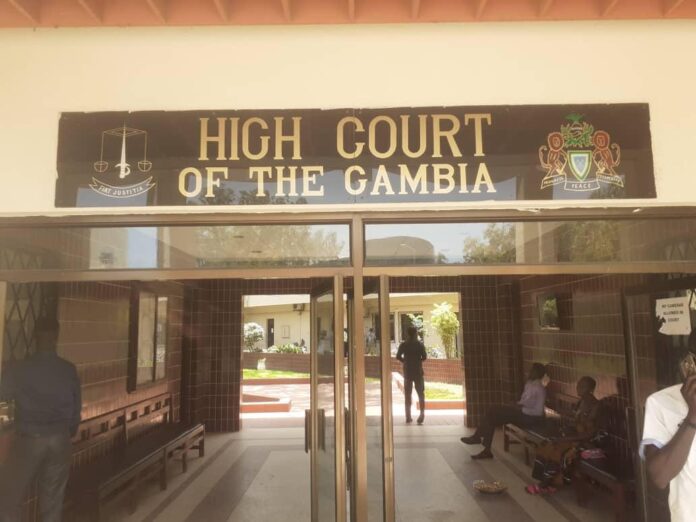By Yankuba Jallow
As the Judiciary prepares to begin the legal year celebrations, Foroyaa will be publishing the problems the people face in trying to access justice and the weaknesses of the system of administration of justice. The publications would go beyond the legal year celebrations. This is in line with the constitutional duty of the media in holding the authorities to account. Foroyaa will publish the statements at the Legal Year scheduled to take place over the weekend.
The Judiciary of The Gambia has what it called “Strategic Plan”. It was launched on 31 January 2021 by the Chief Justice of the Gambia. The plan has a life span of five (5) years. The strategic document sought to enhance the Judiciary as an independent, effective and efficient justice system for upholding the rule of law; to promote its mission to ensure a fair, impartial and timely delivery of quality justice by a competent, motivated and committed staff in collaboration with justice stakeholders.
Chief Justice Hassa B. Jallow at the launch event said the strategic plan identified eight (8) outcome-oriented goals which are to strengthen the independence of the judiciary and its autonomy, to upgrade and expand physical infrastructure and improve the work environment, restructure and strengthen organizational and institutional capacity, to improve efficiency of court processes and services delivery, to develop the human resources capacity required for a modern judiciary, to harness ICT to support court functions, to improve access to the courts and tribunals and to improve communication and stakeholder confidence.
The District Tribunals and the Industrial Tribunal are the two courts that have the most serious problems in terms of the delay of cases. The two tribunals take years before deciding on cases.
Brikama Magistrate’s Court is one of the busiest courts in the Gambia. Its jurisdiction covers the entire West Coast Region, which is Gambia’s largest Region. There is another small court at Brusubi that also hears cases – criminal and civil.
The Brikama Magistrate’s Court has about five court rooms. This week, the reporter was at the Brikama Magistrate’s Court. There were only two magistrates working whereas the others were said to be on annual leave.
The story is not based on one-week visit. The revelations here are based on our findings in 2023, which is continuing in 2024.
The first observation is that the courts do not adhere to the work time. By 1 pm daily or latest 2 pm, the courts are done with the hearing of the cases. The courts would start late – mainly 9:30 in the morning daily.
There were instances of absenteeism of magistrates. We have been doing interviews with litigants regarding their cases. We did not discuss the details of the cases, but focused on the delay they have been facing and the conducts of the courts in terms of how the courts are contributing to the delays.
There were instances of adjournments at the Kanifing Magistrate’s Court because of lack of interpreters. The situation remains unresolved and most of the cases are still being hampered. Under the Gambian laws, a litigant has the right to speak in a language of his or her choice. Hence, there is a need for interpreters.
The police, who are the main prosecutors in criminal cases at the magistrates’ courts, also have problems. We will be highlighting them in our subsequent publications.
Follow Foroyaa for more on the problems of the Judiciary. We will publish 10 articles regarding the Judiciary showing the challenges the people are facing.




















